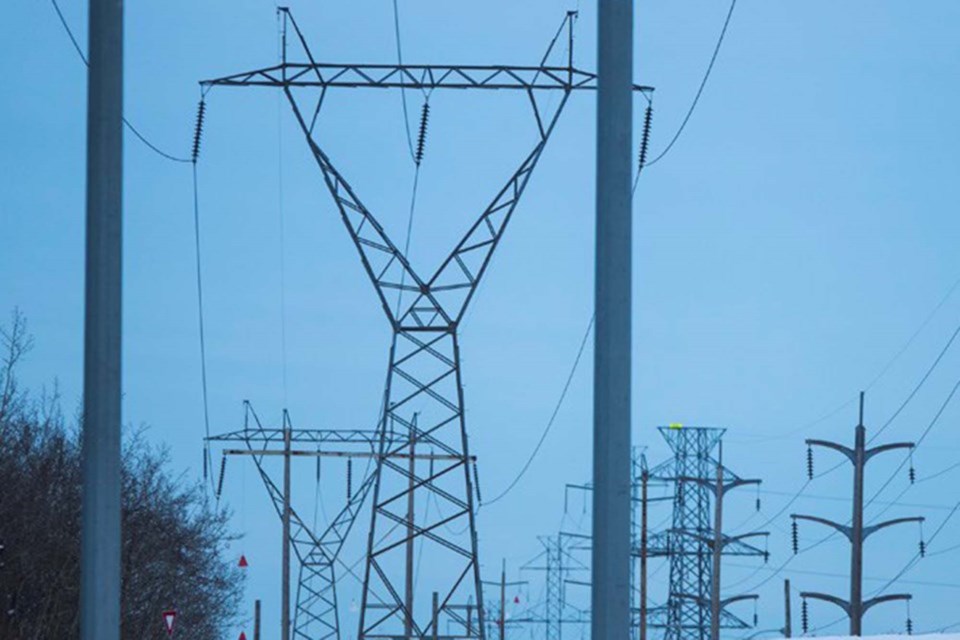Council voted Monday to approve a hike in the electrical franchise fee in an effort to bring down the projected 2023 tax increase, a move that will see the fee jump by 50 per cent in January.
The increase will mean the owner of a $450,000 home using an average amount of electricity (640 kilowatt-hours/month) will pay an additional $40 per year in electrical franchise fees — also known as a local access or municipal access fee. The revenue generated from the fee will result in a $51 reduction in the tax increase for the average homeowner, resulting in a $11 net benefit to the homeowner when factoring in the additional franchise fee cost.
The city’s existing 10-per-cent electrical franchise fee will rise to 15 per cent in the new year. The city predicts the increase will bring $1.7 million in revenue, resulting in a 1.4-per-cent tax levy decrease (bringing down the projected 8.2-per-cent increase to 6.8 per cent).
The city charges a local access fee to its utility provider, Fortis Alberta, for access to city land where utility infrastructure is built. That fee is then passed on to customers on their monthly utility bills, with the fee increasing in proportion to how much the user consumes.
The Alberta Utilities Commission sets maximum fee limits of 20 per cent for electricity and 35 per cent for gas.
St. Albert's natural gas franchise fee is 20.3 per cent, which took effect on Jan. 1, 2019.
The city first introduced the fee in 2019 at five per cent to bring in revenue of $1.43 million in its first year to offset property taxes. The fee climbed to 7.5 per cent in 2020, and 10 per cent in 2021.
While the average homeowner will see an offsetting reduction, additional costs will be borne by businesses and entities that do not pay property taxes, such as schools, churches, and nonprofits.
The city’s chief financial officer, Diane McMordie, told council the net difference between property taxes paid by a non-residential customer and the franchise fee increase is more difficult to calculate than its residential counterpart, as non-residential users vary widely in both tax assessment and electricity consumption.
As for how much more non-residential users would pay in electrical franchise fees, however, an attachment with council’s agenda showed the average customer in the mid-range use of electricity at 7,000 kilowatt-hours per month would see their rates increase around $285 per year.
According to a backgrounder attached with the motion, St. Albert charges less in franchise fees than its comparator municipalities.
For example, Grande Prairie has a 10-per-cent electric franchise fee, Red Deer has a fee of 13.9 per cent, Lethbridge has a franchise fee of 15.50 per cent, and Airdrie has a rate of 20 per cent.
Garry Wetsch, the chair for the St. Albert and District Chamber of Commerce, addressed council in opposition to the fees.
“The St. Albert District Chamber represents over 720 businesses, many of them struggling with the lingering effects of COVID, and now faced with incredible inflationary cost pressures,” Wetsch said. “Property taxes are a big item, but not the only one causing us concern.”
Wetsch said council and city administration should find ways to both stave off a fee increase, and keep tax increases down, and suggested the city should work with the chamber and other groups to find ways to offset expenses to other groups, such as non-profits.
Earlier in the meeting, administration had noted the Alberta Utilities Commission and Alberta Municipalities define franchise fees as a user fee, instead of as a tax.
Coun. Wes Brodhead described the distinction as “a bit of a ‘po-tay-to-po-tah-to,’” but ultimately spoke in support of the fee increase.
“Overall, the use of this particular mechanism to raise revenue for the city is the most equitable for everybody,” Brodhead said.
Brodhead emphasized the city’s need to increase revenue, noting increasing electrical franchise fees is one way to require all electrical users in St. Albert to contribute, rather than solely those who pay property taxes.
Coun. Sheena Hughes opposed the fee increase, arguing it is redundant.
“It will not be an effective tax decrease for any of our residents, but it does somehow make us look like we’re doing something, when all we’re really doing is collecting from two different paycheques, two different bills,” Hughes said.
She said the impact to residents would be small, but the strain on businesses would be unjust.
“For some reason we seem to have really not enough empathy for the people trying to run a business,” Hughes said, adding that schools will also be impacted.
“We’re going to take more for their power, and … they don’t have an option to turn [the lights] off and teach the kids in the dark.”
Ultimately, council voted 5-2 in favour of the increase, with Hughes and Coun. Shelley Biermanski opposed.




